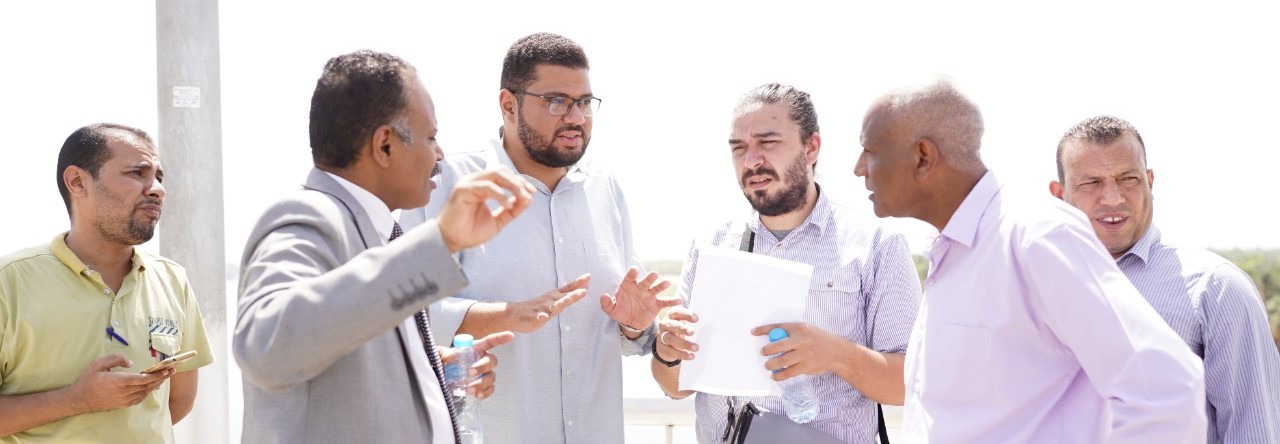Planning Ministry's delegation follows up on the implementation of green standards in Fares village in Aswan

30 September 2022
A delegation of the Planning Ministry conducted recently an inspection tour of the implemented and ongoing projects in Fares village, Kom Ombo Center, Aswan Governorate, with representatives of the "ECOnsult" engineering and environmental consultancy company.
This came in preparation for presenting it as a model for the Green Village at the United Nations Climate Summit (COP27), which Egypt will host next November in Sharm El-Sheikh.
H.E. Dr. Hala El-Said, Minister of Planning and Economic Development, stated that the current period is witnessing intense coordination efforts with development partners, to meet the criteria of the green village in the village of Fares, as a pioneering model within the national project for the development of the Egyptian countryside, "Decent life."
El-Said asserted that the idea of sustainable rural communities, which was implemented during the last period, has become a tangible reality, pointing out that after the completion of the application of these standards, the village will become a "success icon" for other villages of the presidential initiative.
For his part, Dr. Jamil Helmy, Assistant Minister for Follow-up to the Sustainable Development Plan, said that the purpose of the visit is to monitor the completion rates of the development projects being implemented in the village of Fares and to follow up on their conformity with the green standards set by World Green Building Council.
Helmy added, that the data issued by the electronic system to follow up on the "Decent Life" project indicates that the total implemented and ongoing investment projects in the village of Fares amount to 31 projects for EGP 650 million, of which 25 are ongoing projects, at EGP 588 million, as well as 6 projects that have been completed.
The delegation of the Ministry of Planning toured the projects being implemented within the "Decent Life" project, including the establishment of an ambulance point in Fares village, at EGP 1.2 million, and the completion rate is 80%, and it is intended to be completed within a month.The delegation also inspected the project of constructing residential buildings for the first families with 6 buildings (48 units), attached to 48 pens for breeding birds, at EGP 33 million, with a completion rate of 95%.The delegation also visited the project to establish the technology center in the village, which includes (a local unit, local council, civil registry, post office, catering office, and social affairs unit), with a completion rate of 95%, and the project to establish an electrical distribution panel, with a completion rate of 85%.
The delegation of the Ministry of Planning includes Ahmed Al-Shimy and Muhammad Sharif Al-Hilli, coordinator of the "Decent Life" initiative in the ministry, and from the "iConsult" company, Eng. Ahmed Al-Sharif, Eng. Muhammad Mustafa Abdel-Aal, Eng. Ayman Mukhtar.









